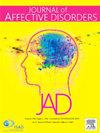Examining differences in the effects and contexts of naturalistic psilocybin use for White participants vs. Participants of Color: A longitudinal online survey study
IF 4.9
2区 医学
Q1 CLINICAL NEUROLOGY
引用次数: 0
Abstract
Background
Psilocybin (a psychoactive compound found in “magic mushrooms” or “shrooms”) has been gaining increased attention in research and popular culture as a number of clinical and observational studies have demonstrated that it may have potential for improving mental wellbeing. Relatedly, there has been a substantial uptick in naturalistic (e.g., real-world, non-clinical) psilocybin use in the United States. While a number of longitudinal studies have demonstrated that naturalistic psilocybin use is linked to positive mental health outcomes on average, few studies have examined how the effects of psilocybin and contexts for psilocybin use may differ for White populations compared to Populations of Color.
Objective
To examine differences in health outcomes, subjective effects, and contexts of naturalistic psilocybin use in White participants compared to Participants of Color.
Methods
This study used data from a large, online longitudinal study of individuals who planned to engage in naturalistic psilocybin use (N = 2833). We used mixed-effects models to assess whether race/ethnicity (White vs. Participant of Color) moderated associations between time (Time 2 [initial assessment point for longitudinal measures], Time 5 [2–4 weeks post-psilocybin experience, and Time 6 [2–3 months post-experience]) and outcomes related to mental health (depression, anxiety, spiritual wellbeing, cognitive flexibility, emotion regulation [expressive suppression + cognitive reappraisal]). We also used exploratory chi-squared tests to examine differences in contexts for psilocybin use as well as differences in subjective effects related to the psilocybin experience.
Results
Race/ethnicity moderated the associations between time for predicting spiritual wellbeing (beta = −1.8; 95 % CI [−3.4, −0.17]; p < 0.05), cognitive flexibility (beta = −1.5 [−2.7, −0.26]; p < 0.05), and emotion regulation – expressive suppression (beta = 0.25 [0.06, 0.44]; p < 0.05) at Time 6 (but not Time 5). Additionally, Participants of Color reported minor differences in subjective effects and context for use compared to White participants (e.g., more likely to have set an intention prior to use, report time speeding up during the experience, etc.). We found reductions in anxiety and depression for both Participants of Color and White participants, and our moderation tests for these outcomes were not significant.
Conclusion
Race/ethnicity impacts the associations between psilocybin use and various markers of mental wellbeing. Future longitudinal studies and experimental studies with larger samples of color can further elucidate the preliminary findings from this study.
考察白人参与者与有色人种参与者在自然使用迷幻药的效果和环境方面的差异:一项纵向在线调查研究。
背景:由于一些临床和观察性研究表明,迷幻药(一种存在于 "魔幻蘑菇 "或 "蘑菇 "中的精神活性化合物)具有改善精神健康的潜力,因此在研究和流行文化中越来越受到关注。与此相关的是,在美国,自然使用(如现实世界中的非临床使用)迷幻药的情况大幅增加。虽然许多纵向研究表明,自然使用迷幻药平均与积极的心理健康结果有关,但很少有研究探讨白人与有色人种相比,迷幻药的效果和使用迷幻药的环境有何不同:目的:研究白人参与者与有色人种参与者在健康结果、主观效果和自然使用迷幻药的环境方面的差异:本研究使用了一项大型在线纵向研究的数据,研究对象是计划使用自然迷幻药的人(N = 2833)。我们使用混合效应模型来评估种族/民族(白人与有色人种参与者)是否调节了时间(时间 2 [纵向测量的初始评估点]、时间 5 [西洛赛宾体验后 2-4 周]和时间 6 [体验后 2-3 个月])与心理健康相关结果(抑郁、焦虑、精神健康、认知灵活性、情绪调节 [表达抑制 + 认知再评价])之间的关联。我们还使用了探索性卡方检验来研究使用迷幻药的环境差异以及与迷幻药体验相关的主观效果差异:结果:种族/族裔调节了预测精神幸福感的时间之间的关联(β = -1.8; 95 % CI [-3.4, -0.17];P 结论:种族/族裔影响了预测精神幸福感的时间之间的关联(β = -1.8; 95 % CI [-3.4, -0.17]):种族/民族会影响使用迷幻药与各种精神健康指标之间的关联。未来的纵向研究和更大样本的实验研究可以进一步阐明本研究的初步发现。
本文章由计算机程序翻译,如有差异,请以英文原文为准。
求助全文
约1分钟内获得全文
求助全文
来源期刊

Journal of affective disorders
医学-精神病学
CiteScore
10.90
自引率
6.10%
发文量
1319
审稿时长
9.3 weeks
期刊介绍:
The Journal of Affective Disorders publishes papers concerned with affective disorders in the widest sense: depression, mania, mood spectrum, emotions and personality, anxiety and stress. It is interdisciplinary and aims to bring together different approaches for a diverse readership. Top quality papers will be accepted dealing with any aspect of affective disorders, including neuroimaging, cognitive neurosciences, genetics, molecular biology, experimental and clinical neurosciences, pharmacology, neuroimmunoendocrinology, intervention and treatment trials.
 求助内容:
求助内容: 应助结果提醒方式:
应助结果提醒方式:


